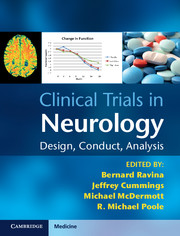Section 1 - Part
Published online by Cambridge University Press: 05 May 2012
Summary
- Type
- Chapter
- Information
- Clinical Trials in NeurologyDesign, Conduct, Analysis, pp. 1 - 27Publisher: Cambridge University PressPrint publication year: 2012
- 1
- Cited by

